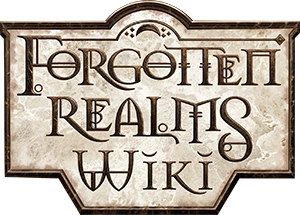Most RPG settings have some form of godhood. Yet there are some age-old questions that come into play as you create religions.By Unknown author - Os Deuses Egípcios – IMAGICK, CC BY-SA 4.0, File:Deuses Egipcios.png - Wikimedia Commons
Gods and “hokey religions” (to quote Han Solo in Star Wars a New Hope) are usually part of fantasy and science fiction role-playing games. From a world-building standpoint, you can approach religion as a form of philosophy, a way to guide one’s life, but a lot more people are into religion than philosophy. Rather than using a religion that resembles a modern day equivalent, let’s start from scratch by asking some fundamental questions:
How Many?
How many gods are there? In human history, ancient gods often were members of a pantheon, a group of gods. So it is with many RPG campaigns and settings. Gods from these ancient pantheons (Greek and Roman most prominently) were superpowerful and immortal, but otherwise behaved much like humans. Less common was a single god, or a god who has an oppositional aspect (effectively another god) as in Manichaeism or Persia’s Zoroastrian religion (Ahura-Mazda and Ahriman). It has been uncommon to think that only “my” gods exist, and no others. The belief is more likely when there is only one (or two) god(s) in a religion rather than a pantheon. After all, if you can have a bunch of gods, why can't someone else, and those gods compete with one another?Gender?
Male vs female? Virtually all the ancient religions were heavily male-oriented, just as societies were heavily male-oriented. Some did have powerful goddesses often related to fertility. But male orientation is not necessary in a fantasy world in which women are often treated much differently than women in the ancient world. There is some notion that in prehistoric times, some religions were heavily female oriented.Belief?
Do you believe? Just as in the real world, some characters are going to want nothing to do with gods, while others will devote their lives to them. Some will assume that gods are only bad for humanity, others that gods provide great good for humanity. A GM/World-Builder can influence this strongly through the actual behavior of the gods.Do You Have a Choice?
Is there State Sponsorship (forcing everyone to conform)? In the real world, sometimes people are free to choose their religion, other times they are required to conform to the state religion. And you have cases where the laws are devised to encourage someone to convert (as when non-Muslims paid an additional tax in the early centuries of Arab expansion). The Roman Empire changed state sponsorship from their pagan religion to Christianity in the fourth century CE. And so on. The player characters could be religionists resisting state-imposed religion.Divine Right?
What about men/women worshiped as gods? There have been many times in human history that rulers justified their right to rule by declaring themselves to be gods. Among these are the Pharaohs, the later Roman emperors, and many medieval kings of Europe. For some it was just an excuse, but others seem to have really believed it.Manifestations?
How much do gods manifest in (appear or directly influence) the world? Some ancient gods, e.g. Greek, were thought to constantly meddle with the world. Egyptian gods were less present in the world. If gods do meddle with the world, how do they do it? Provide direction for worshipers (even holy war?)? Give boons to their most prominent worshipers?Fear or Love?
Do characters fear their god(s) (and for that matter, rulers), or love him/her/it/them? This depends on the priesthood, or on the behavior of the “actual god(s)”. It also depends on what the ruler thinks is best. It’s easy to make people fear him/her/it when the gods themselves are involved.The Old Gods?
What about the “old gods,” the ones who no longer have worshipers? Do they fade away entirely, or do they hang out in the background, so to speak—perhaps providing quest material for players? If they hang out, do they become neutral, or benign, or malign?What Are They Really?
"Gods" as Aliens - or Monsters. What are the gods, really? Perhaps they're all part of a big scam?For an in-depth exploration of different ways to implement religion in your campaign (and answers to some of these questions), see Andrew “Corone” Peregrine’s excellent series of articles on the topic.
Your Turn: What questions did I miss?





